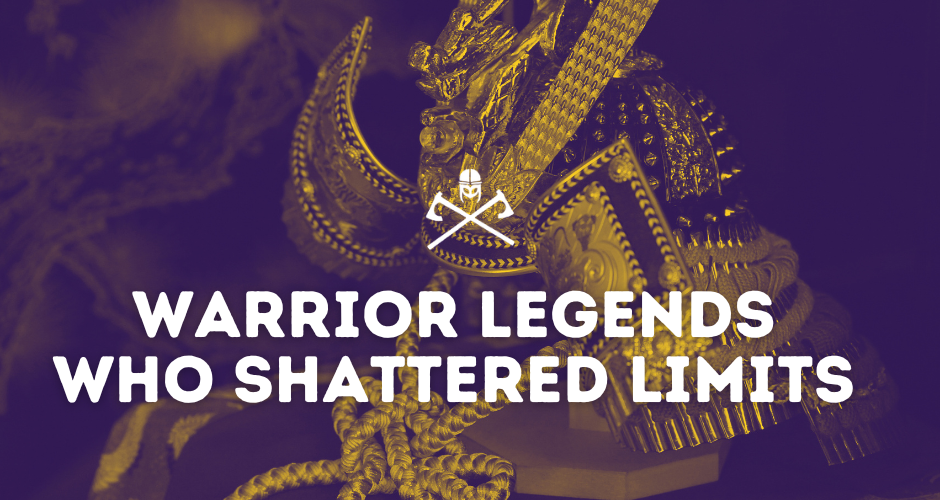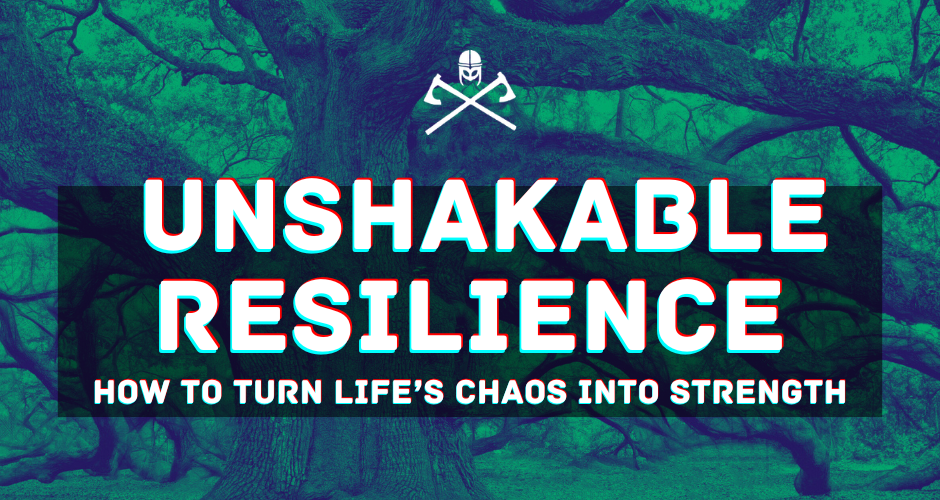
by Gene Crawford | Dec 15, 2025 | Podcast
In this powerful Warrior Mindset episode, we explore the idea of breaking barrier; physical, psychological, cultural, and institutional. From Miyamoto Musashi to Harriet Tubman, Bass Reeves to Kyle Maynard, we dissect what makes a true warrior: relentless discipline, adaptive thinking, and the refusal to accept limits.
These warriors didn’t just fight battles, they redefined the battlefield. Whether you’re navigating internal struggles or societal expectations, this episode challenges you to confront what’s holding you back and break through it with clarity, purpose, and grit. Adapt faster. Endure longer. Think deeper. This is how legends are made.
(more…)

by Gene Crawford | Dec 8, 2025 | Podcast
Combat sports offer far more than physical conditioning. They give people structure, community, and a brutally honest way to face themselves. Many who struggle with anxiety, depression, or identity issues find stability through training because progress is undeniable and earned. Combat sports replace stigma with connection, giving people a place to fail safely and rebuild confidence. For some, the discipline and consistency found on the mats becomes a lifeline that modern life no longer provides.
(more…)

by Gene Crawford | Nov 24, 2025 | Podcast
What if heaven wasn’t a peaceful escape, but a battleground for warriors? In this episode, we explore the myth of the Einherjar, Norse warriors who trained for Ragnarok in eternal preparation. But this isn’t just myth, it’s a mindset. We connect their legendary grit to modern challenges like discipline, failure, growth, and inner strength. Through repetition, not perfection, you’ll learn to train, fall, rise, and repeat. We fuse Norse myth with samurai philosophy to help you reframe struggle as sacred. Whether in fitness, business, or daily life, this episode gives you the tools to meet your personal Ragnarok with purpose.
(more…)

by Gene Crawford | Apr 29, 2025 | Blog
When most people think of stamina, they picture athletes dripping in sweat, soldiers grinding through their last mile, or fighters still swinging when everyone else is out of gas. But the truth is, the real kind of stamina, the kind that builds empires, relationships, careers, and unshakable mindsets, isn’t loud or flashy.
It’s quiet. It’s invisible. It’s deadly.
At Warrior Mindset, we talk a lot about resilience, grit, and mental toughness. But if you’re overlooking stamina, you’re missing the trait that actually keeps you in the fight long after the motivation fades.
What Is Real Stamina?
Stamina isn’t just the ability to keep moving when you’re physically exhausted. It’s the ability to keep showing up when you’re mentally drained, emotionally worn out, and spiritually tested.
It’s the parent who keeps listening, even when they’re exhausted. It’s the business owner who keeps building, even when no one’s buying. It’s you, deciding to do the hard thing, again, after everyone else has checked out.
The people who win are not the most gifted. They’re the ones who keep going when the talented ones get tired.
Why Stamina Is Your Unfair Advantage
Here’s what no one tells you:
The world is full of people who start strong and finish nowhere.
They rely on motivation, adrenaline, or natural ability, and it burns out.
Stamina is what stays after all that fades. While others waste time restarting, you’re still moving forward.
And here’s the kicker:
Every result you want, whether it’s money, mastery, fitness, relationships, peace of mind, is on the other side of sustained effort.
🥋 3 Warrior Takeaways: How To Build Relentless Stamina
1. Train Your Frustration Threshold
Most people don’t quit because they’re weak. They quit because they can’t tolerate the feeling of sucking at something.
Start training that threshold today:
- Choose one thing every day that frustrates you, and lean into it.
- Learn a skill you’re bad at.
- Sit in silence for 10 minutes without distraction.
- Finish that boring task you keep avoiding.
You’re not training the skill, you’re training the muscle of not quitting when you’re frustrated.
2. Measure Progress by Reps, Not Results
The world is built to distract you and reward instant gratification. Stamina ignores that.
Here’s how you beat the system:
- Track how many reps you put in, not how many results you see.
- Show up when you don’t feel like it.
- Do the work, even without applause.
- Stack days, not dopamine hits.
Reps compound. Results follow.
3. Build “Micro-Stamina” Habits
You don’t build big stamina without practicing small stamina.
If you can’t trust yourself with the small battles, you won’t trust yourself with the big ones.
Start here:
- Get up when your alarm goes off, no snoozing.
- Finish every workout, even if you’re crawling.
- Keep your word, even when it’s inconvenient.
- Do what you said you would, especially when you don’t feel like it.
⚔️ Bonus Assignment: Stretch Your Quitting Point
Here’s a mental drill that quietly separates warriors from the crowd:
The next time you want to quit, don’t.
But don’t force yourself to go forever. Just stretch your quit point by 60 seconds.
- One more rep.
- One more sentence.
- One more uncomfortable conversation.
- One more minute of discipline.
That extra minute builds the muscle no one else is training: Your ability to keep going when it’s not fun, not exciting, and not convenient.
Stamina Always Outlasts Talent
At Warrior Mindset, we don’t worship overnight success or temporary brilliance. We train for the long game.
Because flashy fades. Stamina wins. And in the end, the last one standing is the one who never stopped showing up.
🔥 Want More? Get More Warrior Mindset Tools In Your Inbox
Subscribe to the Warrior Mindset Newsletter and get weekly mental training, tactics, and mindset tools straight to your inbox, so you can sharpen your edge and stay in the fight longer than anyone else.

by Gene Crawford | Apr 28, 2025 | Podcast
Life doesn’t care about your plans—it throws curveballs. In this episode, we dive into the mindset required to turn adversity into strength. From a hilarious text mishap to a personal story involving my 75-year-old mother stranded on the road, we explore how family, grit, and perspective fuel resilience. Drawing insights from “Fight Right” and SEAL training, we break down how real toughness is forged—through chaos, not comfort. With strategies like journaling, kihon-level discipline, and embracing discomfort, we arm you with tools to stay grounded, push forward, and grow stronger through life’s storms. This is the warrior’s path.
(more…)





